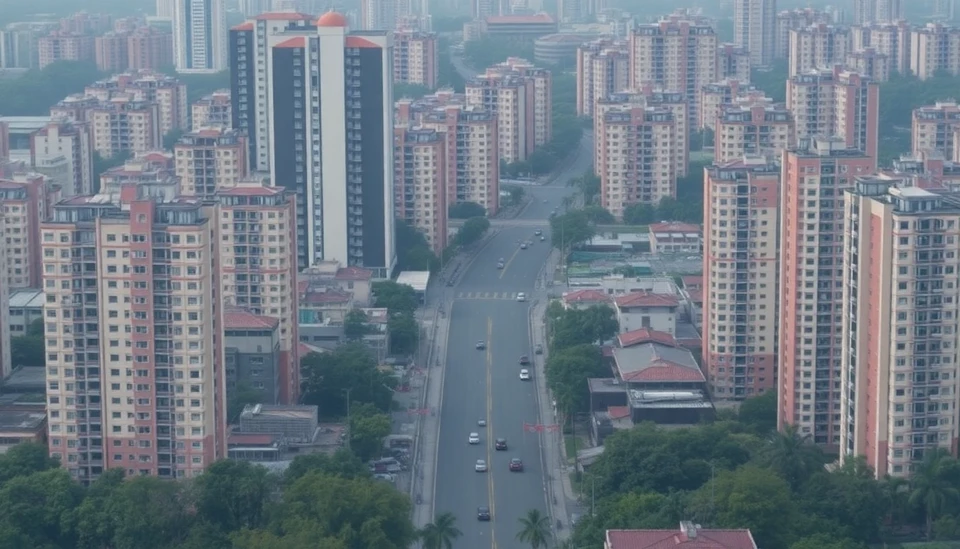
The housing crisis in China has intensified, particularly in Zhengzhou, a city often described as the "iPhone City" due to its role in the production of Apple's flagship device. As the government attempts to implement a rescue plan to revitalize the stagnant housing market, evidence suggests that these efforts are falling short. The ongoing struggle is starkly illustrated in Zhengzhou, where the real estate sector has been a cornerstone of economic growth but is now reeling from financial pressures.
In recent years, China's residential property market has faced a series of shocks, stemming from regulatory crackdowns and the burgeoning debt crises of major property developers. These issues have been exacerbated by fears of economic slowdown and increased scrutiny by authorities, leading to a loss of public confidence in the market. House prices have plummeted in numerous cities, with Zhengzhou being no exception. Homes that once attracted buyers now sit idle, their values plummeting and contributing to a wider economic malaise.
Local residents are feeling the pinch, with many individuals and families unable to sell their homes or move into planned properties due to developers going bankrupt or halting construction. The situation has prompted a significant outcry, with homeowners protesting against incomplete projects and financial institutions scrambling to manage the fallout from rising non-performing loans associated with the real estate sector.
The provincial government has rolled out a rescue package aimed at stimulating demand and reassuring anxious buyers. However, early indications show that this initiative is not enough to restore faith in the housing market. The rescue plan entails financial incentives, such as subsidies on home purchases and credits to support construction projects, but the response from the public has been lukewarm. Many potential buyers remain hesitant, unsure about investing in a collapsing market where uncertainties loom large.
Moreover, macroeconomic factors such as rising unemployment rates and slowing GDP growth are exacerbating the housing crisis. These elements have left consumers feeling insecure, further deterring them from engaging with the housing market. Analysts have pointed out that the government must take more aggressive measures if they want to stabilize the situation. This may include policies that address the root causes of the crisis rather than simply implementing short-term fixes.
Pessimism hangs heavy in the air in Zhengzhou, where the real estate industry has long been perceived as a surefire investment. The fading allure of property as a safe haven reflects a broader concern on the part of consumers regarding the overall economic trajectory of the country. As China's housing rescue efforts falter, the ramifications of this turmoil are likely to ripple through other economic sectors, posing significant challenges to the country's growth prospects in the near future.
With the real estate sector revered just a few years ago, the stark contrast today serves as a wake-up call for many Chinese citizens. The hopes for a flourishing recovery appear dim, with experts warning that without substantial reforms and a fundamental shift in policy direction, the housing crisis in Zhengzhou and beyond is far from over.
As the story of Zhengzhou unfolds, it exemplifies the complexities and challenges that lie at the heart of China's broader economic landscape. The resilience of its people will surely be tested as they navigate this uncertain future, hoping for stable ground amid the turbulence of change.
#ZhengzhouHousingCrisis #ChinaEconomy #RealEstateChallenges #HousingMarket #EconomicRecovery #HomeOwnershipStruggles #iPhoneCity #ChinaHousingRescue
Author: Rachel Greene




